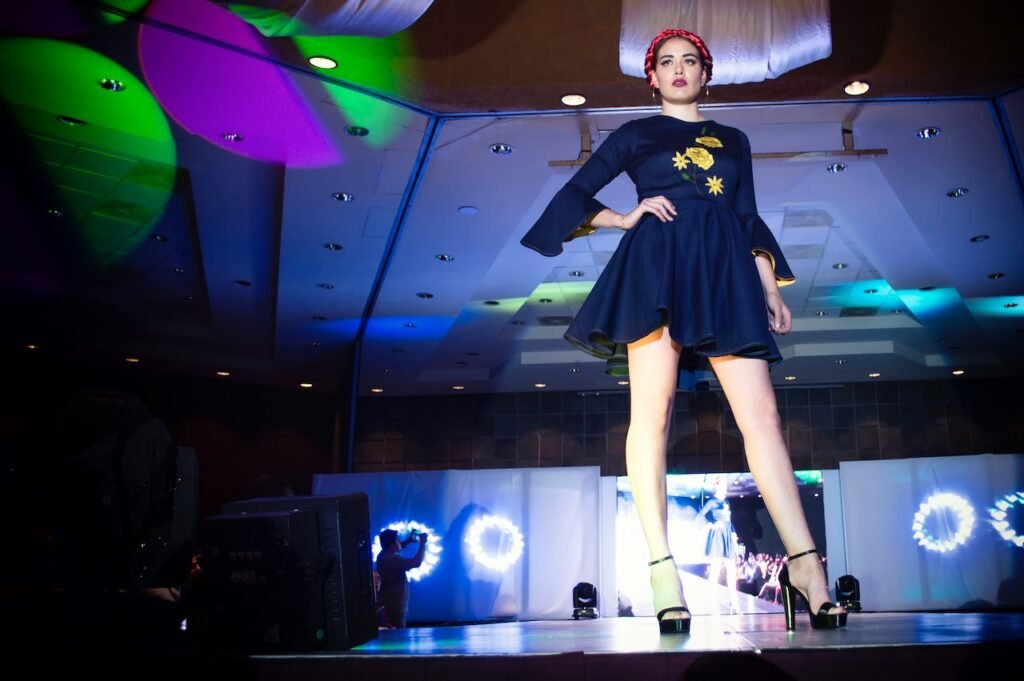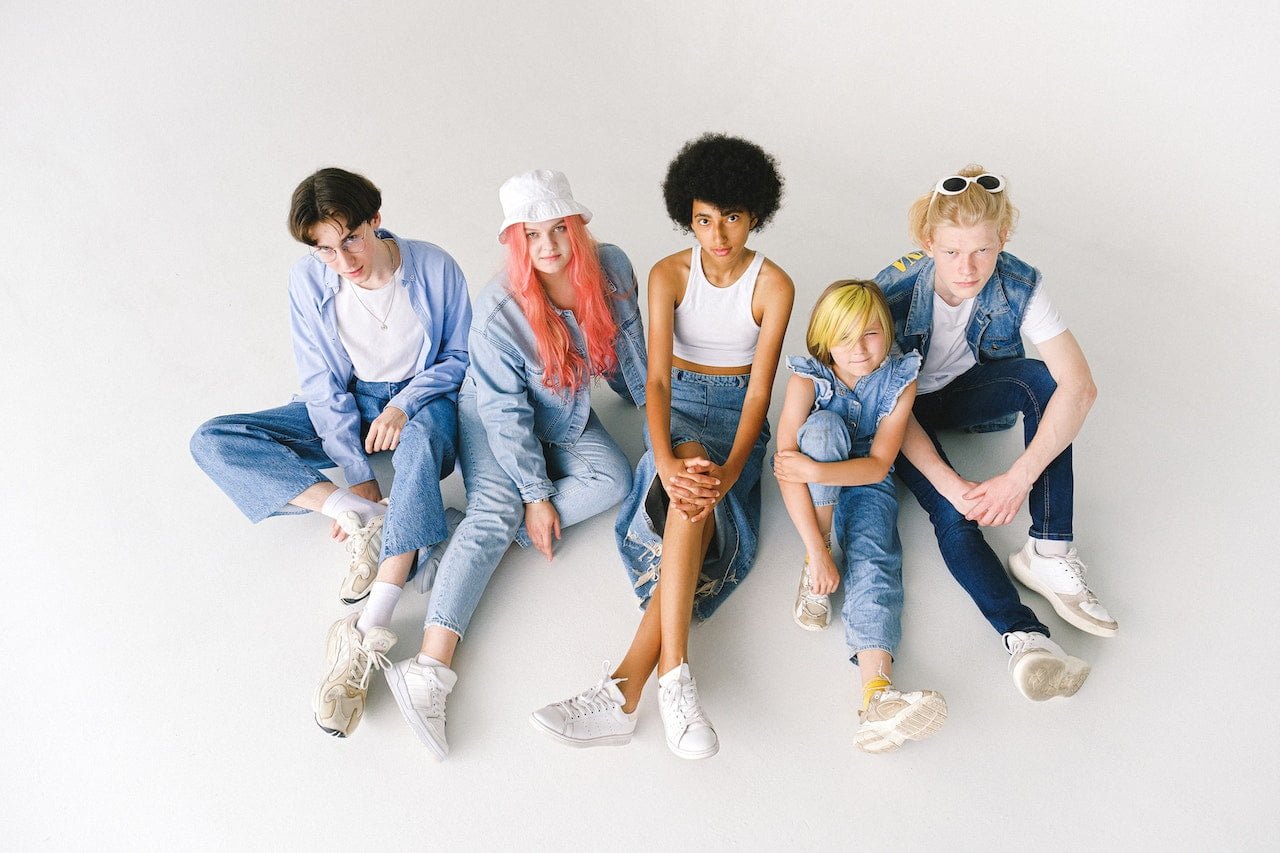Introduction:
Welcome to the world of sustainable fashion, where style meets responsibility. Fashion is undergoing a paradigm shift, moving away from the traditional glamour of the runway and embracing eco-consciousness. In this article, we explore sustainable fashion’s importance, significance, impact, and the steps it takes towards an eco-way. From ethical sourcing to recycling and circular fashion, we will uncover how sustainable fashion trends are improving the industry.
From Runway to Eco-Way: Embracing the Importance of Sustainable Fashion Trends
Sustainable fashion is more than just a fleeting trend; it’s a movement that advocates for responsible practices, mindful choices, and a commitment to environmental and social well-being. Let’s explore some key areas that highlight the importance of sustainable fashion:
Ethical Sourcing: Promoting Fair Trade and Labor Rights Ethical sourcing is the foundation of sustainable fashion. It revolves around ensuring fair wages, safe working conditions, and respecting the rights of workers involved in the production process. Brands now collaborate with artisans and local communities, empowering them economically and preserving traditional craftsmanship.
1. Organic and Eco-Friendly Materials: Nurturing Nature
Fashion embraces eco-friendly materials like organic cotton, hemp, bamboo, and Tencel. These materials are grown without harmful chemicals, reducing the environmental footprint. Additionally, recycled materials, such as PET bottles transformed into polyester fabrics, showcase resourcefulness in the industry.
2. Slow Fashion: Quality Over Quantity
The “fast fashion” culture has led to environmental degradation and exploitation. Slow fashion encourages consumers to invest in durable, timeless pieces which stand the test of time. By prioritizing quality over quantity, we can reduce waste and promote a more sustainable approach to clothing consumption.
3. Circular Fashion: Closing the Loop
Circular fashion emphasizes recycling, upcycling, and reusing garments to minimize waste. Designers and brands are now exploring innovative ways to extend clothing, creating a closed-loop system that promotes sustainability.
4. Sustainable Fashion Events: Redefining Runways

Fashion events embrace sustainability, demonstrating how runway glamour can coexist with eco-consciousness. Eco-fashion shows featuring sustainable collections inspire designers and consumers to adopt responsible choices.
5. Transparent Supply Chains: Accountability Matters
Consumers are demanding transparency about the supply chains behind their favourite brands. We can ensure responsible sourcing and manufacturing practices by holding fashion companies accountable.
6. Eco-Friendly Packaging: Reducing Fashion’s Footprint
The eco-way of fashion goes beyond the garments themselves. Brands are transitioning to eco-friendly packaging options, reducing single-use plastics and opting for biodegradable materials.
7. Upcycling and DIY Fashion: Embrace Your Creativity
Upcycling and DIY fashion allow individuals to express their creativity while reducing waste. Turning old clothing into trendy, unique pieces is a sustainable and fun way to contribute to the eco-way.
8. Sustainable Footwear: Walking Towards a Greener Future
Sustainable fashion isn’t limited to clothing; it also extends to footwear. Brands are innovating to create eco-friendly and cruelty-free shoe options.
9. Social Impact of Sustainable Fashion: Empowering Communities
Sustainable fashion can have a significant social impact, from creating job opportunities in underserved communities to supporting social causes through fashion initiatives.
10. Fashion Renting and Swapping: Reduce, Reuse, Repeat
Fashion renting and swapping services are gaining popularity, enabling people to access trendy outfits without contributing to fashion waste.
11. Conscious Consumerism: Your Choices Matter
As consumers, our choices can shape the fashion industry. Embracing sustainable fashion means making informed decisions and supporting brands prioritizing ethical and eco-friendly practices.
12. Sustainable Fashion Certification: Recognizing Eco-Conscious Brands
Certification programs like Global Organic Textile Standard (GOTS) and Fair Trade certified eco-friendly and ethical fashion brands making it easier for consumers to identify sustainable choices.
13. Greenwashing in Fashion: Beware of False Claims
With the rise of sustainable fashion, greenwashing has become a concern. Learn to recognize false claims and support genuinely eco-conscious brands.
14. Sustainable Fashion and Body Positivity: Diversity and Inclusivity
Sustainable fashion embraces diversity and inclusivity, promoting body positivity and breaking away from unrealistic beauty standards.
15. Fashion Technology for Sustainability: The Future Beckons
Innovations in technology offer exciting possibilities for a more sustainable fashion future. From 3D printing to fabric dyeing techniques, technology is transforming the industry.
16. Sustainable Fashion Influencers: Inspiring Change
Influencers and fashion icons use their platforms to advocate for sustainable fashion, creating awareness and influencing consumer choices.
17. Sustainable Fashion in the Luxury Industry: A New Era
Even luxury fashion houses adapt to sustainable practices, proving that eco-way and luxury can go hand in hand.
18. Government Policies and Sustainable Fashion: Creating Systemic Change
Government support and regulations are crucial in encouraging sustainable practices and making fashion more eco-friendly.
19. Sustainable Fashion and Climate Change: Connecting the Dots
The fashion industry’s impact on climate change is significant. Sustainable fashion aims to reduce greenhouse gas emissions and preserve the environment.
20. Fashion Education and Sustainability: Fostering Future Change Makers
Fashion schools are incorporating sustainability into their curriculum, shaping the next generation of eco-conscious designers.
21. Sustainable Fashion and Empowerment: Changing Lives
Beyond the environmental impact, sustainable fashion initiatives empower individuals and communities, fostering positive change.
22. Circular Economy in Fashion: A Systemic Approach
A circular economy is crucial for achieving true sustainability in fashion. Learn how this model transforms the industry.
23. Eco-Way Fashion Brands: Leading the Charge
Discover pioneering eco-way fashion brands that set the standard for the entire industry.
24. From Runway to Eco-Way: The Journey Ahead
The fashion industry’s journey from the runway to the eco-way is ongoing. Let’s explore the path ahead and our roles in shaping a sustainable future.
FAQs:
Q: What is sustainable fashion, and why is it essential?
Sustainable fashion refers to environmentally and socially responsible practices in the fashion industry. It is necessary because it addresses environmental issues, labour rights, and the impact of consumerism on the planet.
Q: How does sustainable fashion benefit the environment?
Sustainable fashion benefits the environment by reducing waste, conserving resources, and promoting eco-friendly materials and production methods.
Q: Can sustainable fashion be stylish and trendy?
Absolutely! Sustainable fashion embraces creativity and innovation, offering modern and fashionable options that align with ethical and eco-friendly principles.
Q: How can I support sustainable fashion as a consumer?
As a consumer, you can support sustainability by making informed choices, buying from eco-conscious brands, and embracing conscious consumerism.
Q: What are some easy steps to incorporate sustainability into my wardrobe?
You can start by investing in timeless, quality pieces, exploring second-hand options, and opting for sustainable materials and brands.
Sustainable fashion contributes to social causes by supporting fair labour practices, empowering marginalized communities, and promoting inclusivity and diversity.
Conclusion:
Sustainable fashion trends reshape the entire industry from the runway to the eco-way. Embracing the importance of sustainable fashion goes beyond style; it signifies a commitment to a better world. As consumers, we can drive positive change by supporting ethical and eco-friendly choices. We can create a fashion industry that celebrates beauty and cares for our planet and people.










